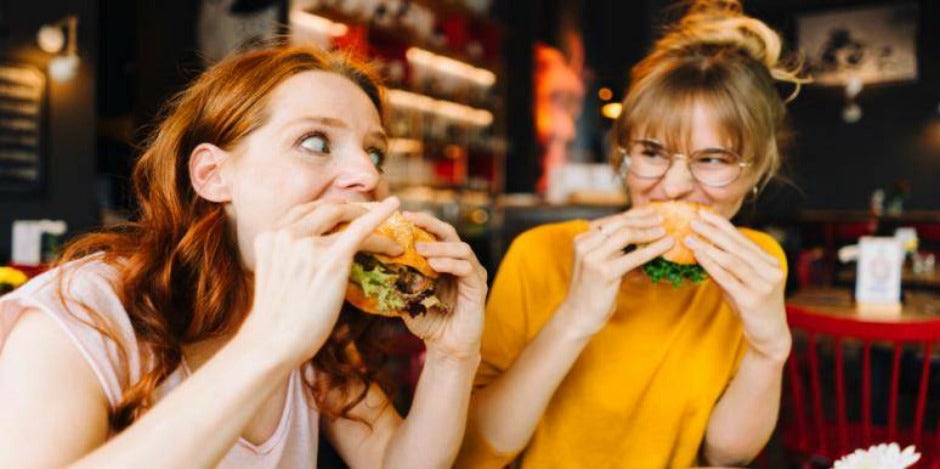
Eating out will never be the same.
By Alice Kelly — Written on May 19, 2020
Photo: getty

One of the earliest impacts of the coronavirus was the temporary closure of restaurants. As businesses were forced to transform their trading, the hospitality industry became the first victim of the pandemic’s economic effects.
Now, as the end to stay-at-home orders looms over a distant horizon, restauranteurs are beginning to assess whether and how to reopen their doors for on-site dining.
But how will an industry that conflicts with every aspect of social distancing operate in a post-pandemic world? How will restaurants change after coronavirus?
Difficult times lie ahead for restaurant workers. As governors begin to release reopening strategies, it will be in the hands of these individuals to implement strict policies that will save lives.
Even though some states have declared it safe to reopen restaurants and retailers, the apprehension and fears felt by many Americans mean that business is far from booming.
Adapting to this new world will be a long and complicated path for business owners. So, how restaurants will change after coronavirus depends on many factors.
How will restaurant culture be reshaped by the coronavirus? Here are some of the ways the industry might change over the coming months.
1. Takeout could be the future.
Even as state laws begin to relax, restaurant owners will likely take their time returning to regular trading. In some states, like Georgia and Texas, rules prohibiting on-site dining have been relaxed, but this has not spurred all business owners to open their dining halls.
It’s a risky move welcoming customers back while coronavirus conditions are still so unstable. Takeout remains one of the most reliable ways for businesses to receive income without jeopardizing employee and customer health.
Restaurants who never offered delivery options before the pandemic, particularly upscale and fine-dining establishments, are unlikely to go back to their old ways as takeout is set to become the primary revenue stream for many restaurants.
Canlis, an upscale restaurant in Seattle, is just one of the many businesses adapting to the long-term effects of the pandemic by switching to delivery-only trade. They shared on their website, “Fine dining is not what Seattle needs right now. Instead, we’re bringing the food to you.”
Encouraging customers to support local businesses without leaving home is key to sustaining both the economy and public health.
RELATED: How Safe Is It To Order Takeout During Coronavirus?
2. Social distancing will be maintained while dining.
Strict policies limiting points of contact will be necessary to ensure restaurants are safe to visit post-pandemic.
In Georgia, maximum capacity rules will allow just 10 customers per 500 square feet. This means fewer tables and fewer staff. Outdoor seating options will be a bonus for businesses going forward as they will be able to spread out tables more easily.
The effects of these limitations could be detrimental to smaller businesses, though. Detroit restaurant owner, Max Hardy, is skeptical. “The 25 percent capacity limit won’t work in Detroit, in my opinion,” he said. “Most restaurants operate on small margins already. Some owners and restaurateurs take home about 25 percent profit only, after expenses, and taking care of their staff.”
We all know at this point that cash is a carrier of germs, so card transactions will certainly be the preferred method of payment. Frequent cleaning of high-touch surfaces like door handles, cash registers, and countertops, was advised by the restaurant guide issued by the LA Department of Public Health.
Limiting points of contact between staff and customers will be the focus of restaurant policies going forward.
3. Some restaurants may require temperature checks and masks.
Nations like South Korea and some parts of Indonesia have been able to gather some level of control over the virus without shutting down their economy. This can be partially credited to their strict implementation of temperature checks in businesses and other public settings.
Is it possible that this should be replicated in America going forward? This allows people to self-quarantine while their body is still incubating the virus and prevents them from spreading it to other people.
Already in the U.S., some states are taking similar measures as South Korea. Anchorage, Alaska began allowing some retailers to reopen their doors in late April.
A log with every customer’s first and last name and contact phone number must be maintained by the restaurant and kept for 30 days for contact tracing purposes. All employees must wear fabric face masks, and customers are encouraged to wear them unless eating.
Sacrificing a small level of privacy for the good of public health seems to be a fair trade.
Related Stories From YourTango:
4. Reopening could be just the beginning of the crisis for some restaurants.
The food and beverage industry is, arguably, experiencing the economic hit of the pandemic more than any other sector of the economy. Based on a survey taken in the early stages of the pandemic, the National Restaurant Association estimated that during the first 22 days of March, the restaurant industry lost an estimated $25 billion in sales and more than 3 million jobs.
Without being able to fill tables, an industry that thrives on cash tips and full capacities is likely to suffer even further once trading resumes.
As the nation's largest coronavirus hotspot, New York’s legendary hospitality scene will face some unique challenges. Will people be willing to go out to eat in one of the worst-hit areas in the world?
Governers and city councils will need to provide financial safeguards to allow businesses to recuperate under these new working conditions. But this is an industry built on passion, creativity, and innovation, and will no doubt strive to overcome this crisis.
RELATED: 8 Ways To Limit Coronavirus Exposure When Grocery Shopping Or Ordering Takeout
More for You:
Alice Kelly is a writer with a passion for lifestyle, entertainment, and trending topics.
